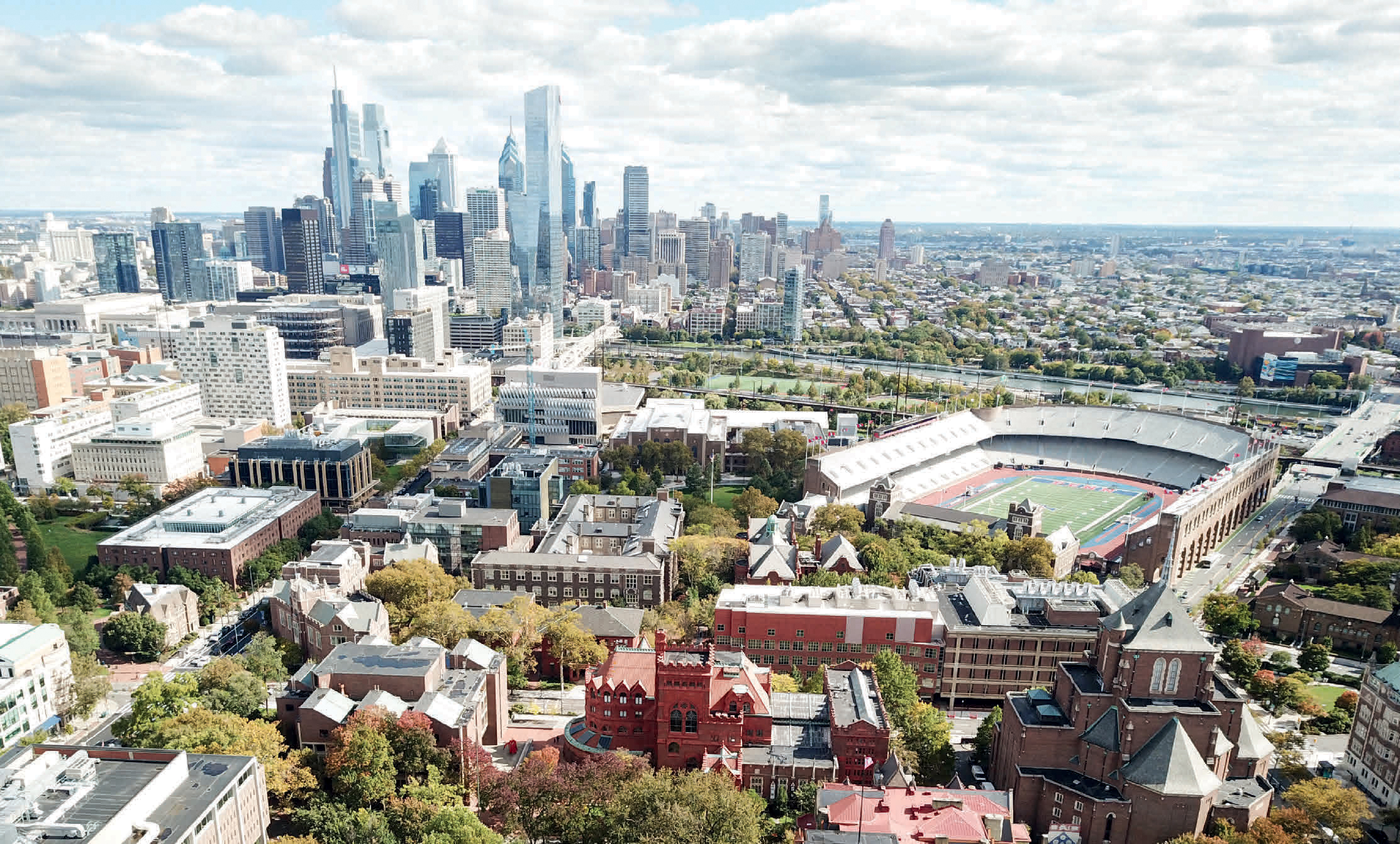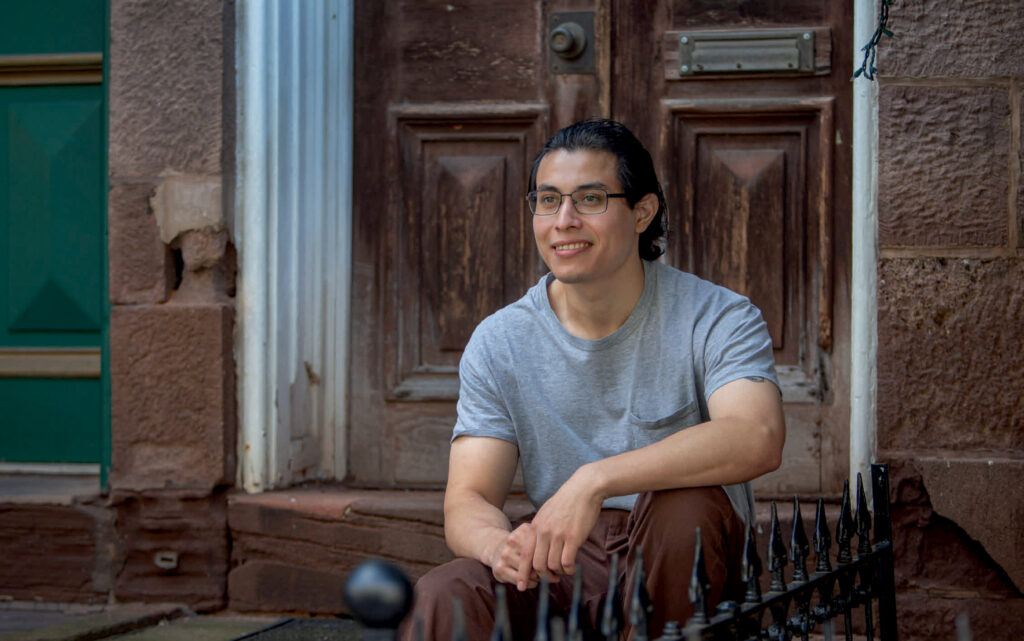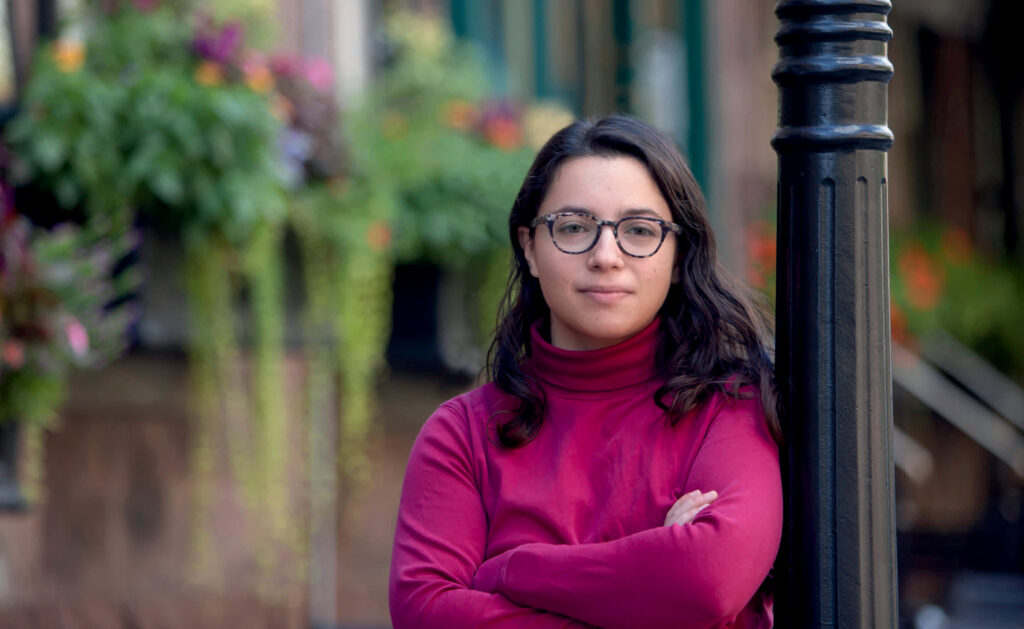
Penn Engineering’s PESTLE program facilitates student engagement in local community service programs
Just as he rose to tell some local middle schoolers about engineering as a career path, Andres Vidal, a master’s student in Chemical and Biomolecular Engineering, hesitated. “Do I really have anything to offer these students?” he thought.
That volunteer experience taught Vidal more about himself than he expected. “As I talked, I felt excited about the subject and realized that my career path is something that I enjoy and know a lot about. By volunteering, I realized it’s not only what I can do with my knowledge, but how I can help my community and inform my personal development.”
For Penn Engineering students like Vidal, finding ways to volunteer and make a difference in the communities around Penn’s campus is now easier than ever. The Penn Engineering Student Learning and Engagement (PESTLE) program is an online resource that helps connect them to a variety of volunteer activities. Students can choose and register for a service opportunity and track and submit their service hours, a critical efficiency as Penn Engineering encourages all students to volunteer at least 20 hours during their time on campus.

Andres Vidal
Master’s Student, Chemical and Biomolecular Engineering
“I realized it’s not only what I can do with my knowledge, but how I can help my community and inform my personal development.”
During his time at Penn, Vidal has participated in volunteer opportunities that include being a demo speaker and leader for a demonstration on biopolymers and encapsulation for BETA Day, which features activities that introduce middle and high school students to concepts in genetic engineering, biomaterials and robotics.
The PESTLE Portal
Ask any engineering student what motivates them to pursue a career in engineering, and you’ll often hear a common theme: the desire to make a meaningful impact on communities and individuals. However, becoming a skilled engineer who can make that impact requires more than the technical expertise gained in the classroom; it also involves cultivating essential “soft skills,” which can be developed through volunteer experiences.
“To solve the world’s most pressing problems, our students must learn about the context in which those problems have evolved,” says Sonya Gwak, Director of Student Life in Penn Engineering. “By engaging with our Philadelphia community, our students learn how they can make a difference right now. That will help our students become the global citizens we aspire for them to be.”
PESTLE offers a fast, digital way for students to find one-time service events or ongoing initiatives that are coordinated by student organizations, the School or through University partnerships with local community centers. Students can also use the portal to log volunteer hours that they carry out on their own, such as tutoring in local schools.
“I am happy that as a School, we have the vision and resources to support our students’ energy and motivation to engage outside the classroom,” says Gwak.
Melanie Hilman
Doctoral Student, Bioengineering
“Being a mentor for students is incredibly gratifying for me, especially when the students are able to act on my words and pave their own paths.”

As both a Penn Engineering undergraduate and graduate student, Hilman has participated in a number of volunteer activities on campus, including time spent with Penn GEMS, a STEM-focused camp experience where Philadelphia-area middle school students participate in hands-on engineering activities in bioengineering, nanotechnology, materials science, graphics and computing.
Making Community Service Accessible
From sharing with youth about engineering and other STEM disciplines to cleaning up local parks and helping to distribute groceries and meals to families near campus in West Philadelphia, Penn Engineering students who take advantage of volunteer activities get to practice so much more than social good.
“An education is largely based on theory, training and preparation for a career. Volunteering is about making a tangible difference immediately and learning empathy early,” says Melanie Hilman, a doctoral student in Bioengineering.
Finding volunteer options can be time-consuming for any Penn student, especially if they are new to campus or are unfamiliar with the city. With PESTLE, the opportunities are just a mouse click away.
“I think the PESTLE program is great because it provides opportunities directly to students and makes it easy for students to get started with community service,” says Eddy Yang, a senior in Computer Engineering. “Once you volunteer, you expand your perspective a bit and you can hone other soft skills like time management and communication.”

Eddy Yang
Senior, Computer Engineering
“Once you volunteer, you expand your perspective a bit and you can hone other soft skills like time management and communication.”
In his role as Operations Lead for Penn Electric Racing (PER), Yang invited Philadelphia Auto and Parole to the group’s new car reveal on campus last year and also facilitates the ongoing cooperation between PER and The Workshop School, a hands-on, project-based high school in West Philadelphia.
Building on a Legacy of Civic Engagement
Volunteerism is hardwired into the University of Pennsylvania experience, dating from its founding and its founding father, Benjamin Franklin, who maintained that one purpose of education is to be able to serve humanity.
“Several years ago, the idea for PESTLE germinated with a discussion among the members of the Technical Advisory Board, particularly Michael Glassman and Rohan Amin,” explains Gwak. “Our alumni expressed how important service to the community is as a central tenet of an engineering education. They envisioned an integrated experience, which PESTLE now is, that would help students find those volunteer experiences and allow them to engage, serve and grow as engineers.”
In a fireside chat with students, Amin noted, “My passion for community service started at Penn when I did some volunteer work and realized that one person could have a real positive impact. I’ve carried that with me as I developed my career, and now as a parent, I share that with my sons.”
Amin (ENG’02) is currently the Chief Product Officer for Chase. As a student at Penn, he was part of a team that volunteered to build computer labs for schools in West Philadelphia, helping teachers take advantage of technology and incorporating that into their classroom curricula.
“There was certainly a social benefit outcome with that project, but there was also a personal development opportunity. The experience helped me focus on people and their needs, ultimately leading me to find my broader purpose,” says Amin. “Penn will give you a fantastic education. It will also open doors for you to the wider world, starting with the local community. By putting yourself out there as a volunteer, you’ll gain perspective and clarity of purpose.”
Story By Amy Biemiller / Photos by Kevin Monko
